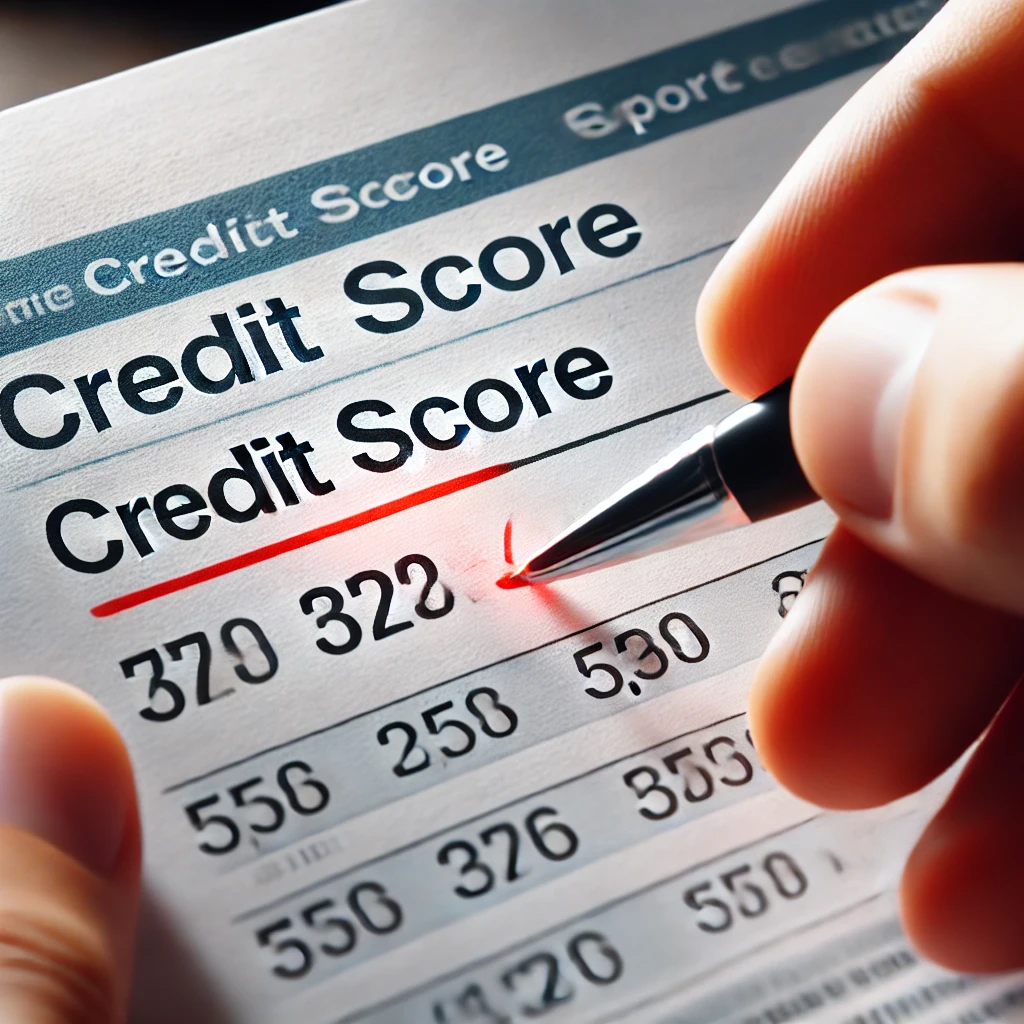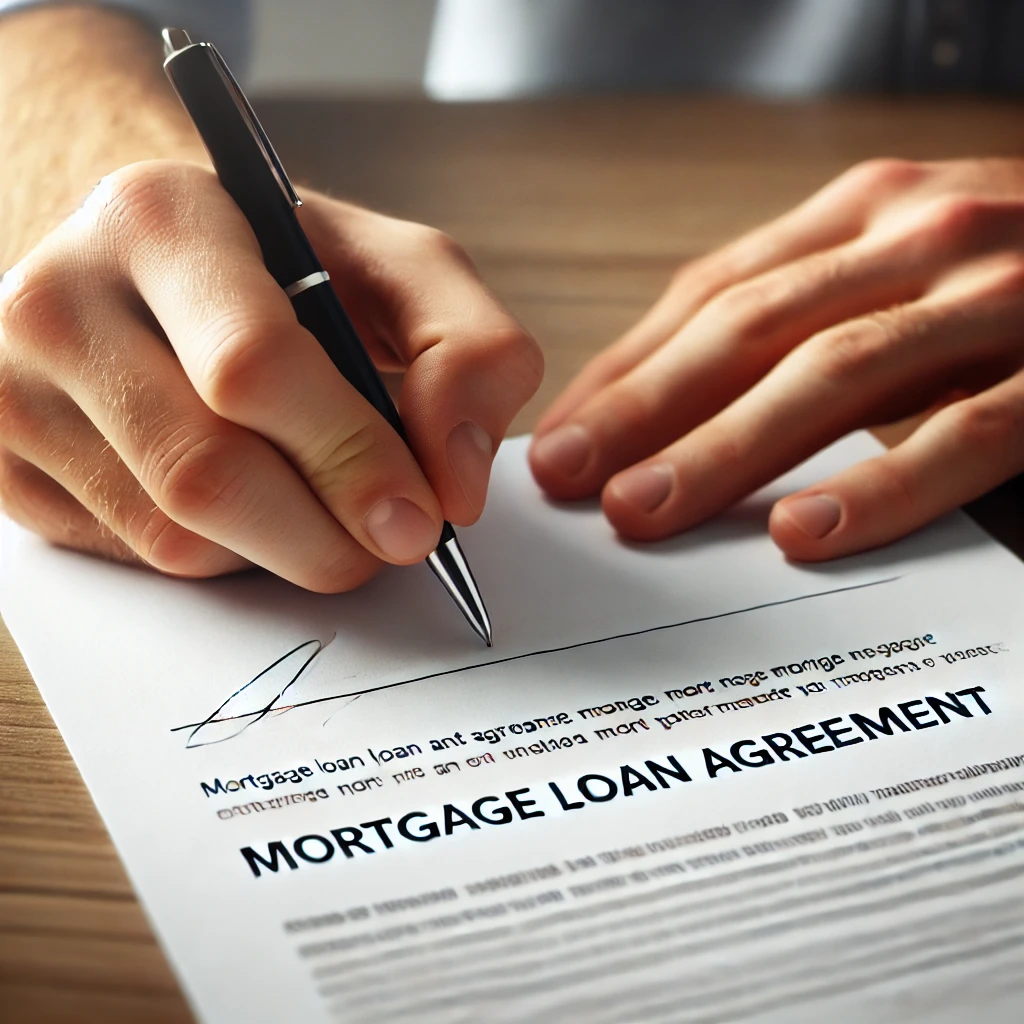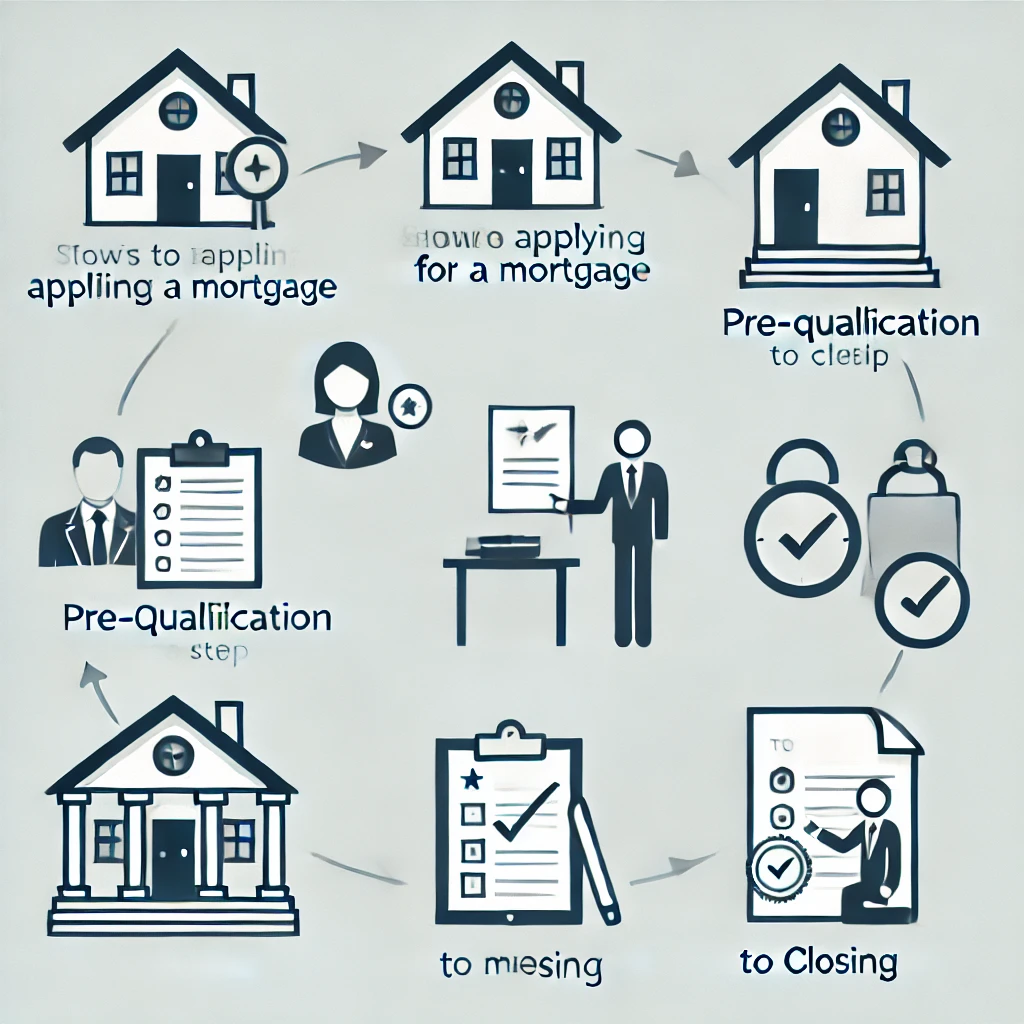1. What is a mortgage?
Answer: A mortgage is a loan used to purchase real estate, where the property itself serves as collateral.
2. What types of mortgages are available?
Answer: Common types include fixed-rate mortgages, adjustable-rate mortgages (ARMs), FHA loans, VA loans, and USDA loans.
3. What is the difference between a fixed-rate and an adjustable-rate mortgage?
Answer: A fixed-rate mortgage has a consistent interest rate for the life of the loan, while an ARM has an interest rate that may change periodically, depending on changes in a corresponding financial index.
4. How much can I afford to borrow for a mortgage?
Answer: Lenders typically recommend that your monthly mortgage payment should not exceed 28-31% of your gross monthly income.
5. What is the minimum down payment required?
Answer: The minimum down payment can range from 3% to 20%, depending on the loan type and lender requirements.
6. What is private mortgage insurance (PMI)?
Answer: PMI is insurance that protects the lender if you default on your loan. It’s usually required if your down payment is less than 20%.
7. What are the key factors that lenders evaluate for mortgage approval?
Answer: Lenders consider your credit score, income, debt-to-income ratio, employment history, and down payment.
8. What is a credit score, and why does it matter?
Answer: A credit score is a numerical representation of your creditworthiness. Higher scores can result in better mortgage rates and loan terms.
9. What is a debt-to-income (DTI) ratio, and how does it affect my mortgage application?
Answer: DTI is the percentage of your gross income that goes toward paying debts. A lower DTI improves your chances of mortgage approval.
10. How does interest rate affect my mortgage?
Answer: The interest rate determines the cost of borrowing. A lower rate means lower monthly payments and less interest paid over the life of the loan.
11. What are closing costs, and how much should I expect to pay?
Answer: Closing costs include fees for processing your loan, which typically range from 2% to 5% of the loan amount.
12. What is an amortization schedule?
Answer: An amortization schedule is a table detailing each payment’s application to principal and interest over the life of the loan.
13. What is a pre-qualification vs. pre-approval?
Answer: Pre-qualification is an estimate of how much you might qualify to borrow, while pre-approval is a formal offer based on your financial situation.
14. Can I lock in my interest rate?
Answer: Yes, most lenders allow you to lock in a rate for a specified period, usually between 30-60 days, protecting you from rate increases.
15. What is a point, and should I buy them?
Answer: A point equals 1% of the loan amount and can be paid to lower your interest rate. Buying points can save money over the long term.
16. What is an escrow account, and why is it needed?
Answer: An escrow account is used by the lender to pay property taxes and insurance on your behalf, ensuring these payments are made on time.
17. What is the difference between principal and interest?
Answer: The principal is the amount borrowed, and the interest is the cost of borrowing that money.
18. How long does the mortgage approval process take?
Answer: The process can take 30 to 60 days, depending on various factors like document submission and property appraisal.
19. What documents will I need to provide for a mortgage application?
Answer: Common documents include tax returns, W-2s, pay stubs, bank statements, and information on current debts.
20. What is a loan estimate, and why is it important?
Answer: A loan estimate provides a breakdown of the estimated costs of your mortgage, allowing you to compare offers from different lenders.
21. What is an appraisal, and why is it required?
Answer: An appraisal is an assessment of the property’s market value, ensuring that the loan amount is appropriate for the home’s worth.
22. What happens if the appraisal comes in lower than the purchase price?
Answer: You may need to renegotiate the price, increase your down payment, or even cancel the purchase.
23. What are property taxes, and how are they paid?
Answer: Property taxes are local taxes based on the value of your home, often paid through an escrow account managed by your lender.
24. How do mortgage rates fluctuate?
Answer: Rates fluctuate based on economic factors like inflation, Federal Reserve policies, and the bond market.
25. Can I refinance my mortgage later?
Answer: Yes, refinancing allows you to replace your current loan with a new one, potentially with better terms or a lower interest rate.
26. What is a home inspection, and is it required?
Answer: A home inspection is an examination of the property’s condition. While not always required by lenders, it’s highly recommended.
27. What is a title search, and why is it necessary?
Answer: A title search ensures there are no legal claims or liens against the property, confirming that the seller has the right to transfer ownership.
28. What is title insurance?
Answer: Title insurance protects against future claims to the property’s ownership and is usually required by lenders.
29. What happens at closing?
Answer: At closing, you sign all the necessary documents, pay closing costs, and the property ownership is transferred to you.
30. What is a balloon mortgage?
Answer: A balloon mortgage involves smaller monthly payments with a large lump sum due at the end of the loan term.
31. What is a jumbo loan?
Answer: A jumbo loan is a mortgage that exceeds conforming loan limits set by Fannie Mae and Freddie Mac, typically requiring a higher credit score and down payment.
32. How can I improve my credit score before applying for a mortgage?
Answer: Pay down debts, make payments on time, and avoid opening new lines of credit before applying.
33. What is a home equity loan vs. a home equity line of credit (HELOC)?
Answer: A home equity loan provides a lump sum based on your home’s equity, while a HELOC offers a credit line you can draw from as needed.
34. Can I pay off my mortgage early?
Answer: Yes, but check if your loan has a prepayment penalty, which could charge fees for paying off the loan ahead of schedule.
35. What happens if I miss a mortgage payment?
Answer: Missing a payment can lead to late fees, damage to your credit score, and potentially foreclosure if not resolved.
36. How does a mortgage impact my taxes?
Answer: Mortgage interest and property taxes may be tax-deductible, depending on your circumstances.
37. What is a mortgage underwriter?
Answer: An underwriter evaluates your financial situation to determine the risk of approving your loan application.
38. What is a conventional loan?
Answer: A conventional loan is not insured by the government and usually requires a higher credit score and a larger down payment.
39. What is an FHA loan?
Answer: An FHA loan is a government-backed mortgage that requires a lower down payment and is easier to qualify for than conventional loans.
40. What is a VA loan?
Answer: A VA loan is a government-backed mortgage for veterans and active-duty service members, often requiring no down payment.
41. What is a USDA loan?
Answer: A USDA loan is a government-backed mortgage for rural properties, often requiring no down payment.
42. What are mortgage origination fees?
Answer: Origination fees are charges by the lender for processing the loan application, typically 1% of the loan amount.
43. What is a rate lock, and how does it benefit me?
Answer: A rate lock secures your interest rate for a specified period, protecting you from rate increases during the application process.
44. What is a loan-to-value (LTV) ratio?
Answer: The LTV ratio compares the loan amount to the appraised value of the property, affecting your loan approval and terms.
45. What is a mortgage broker, and should I use one?
Answer: A mortgage broker acts as an intermediary between you and lenders to find the best mortgage rates and terms.
46. What is a Good Faith Estimate (GFE)?
Answer: A GFE provides an estimate of the fees and costs associated with your mortgage, required by law within three days of applying.
47. What is mortgage insurance, and when is it required?
Answer: Mortgage insurance protects the lender if you default on your loan. It is typically required if your down payment is less than 20%.
48. What is a mortgage contingency?
Answer: A mortgage contingency is a clause in the purchase contract that allows you to back out of the deal if you can’t secure financing.
49. Can I use gift funds for my down payment?
Answer: Yes, many lenders allow gift funds for down payments, but they typically require a letter stating the funds are a gift and not a loan.
50. What are reserve funds, and why might they be required?
Answer: Reserve funds are savings you have after closing, often required by lenders as a safety net in case of financial difficulties.
51. What is a home warranty, and do I need one?
Answer: A home warranty covers repairs on systems and appliances, offering peace of mind but not required by lenders.
52. How long does it take to pay off a mortgage?
Answer: Common mortgage terms are 15, 20, or 30 years, though you can pay off the loan sooner if you make extra payments.
53. What is a bi-weekly mortgage payment plan?
Answer: A bi-weekly payment plan involves making half of your monthly mortgage payment every two weeks, effectively making an extra payment each year.
54. What is a cash-out refinance?
Answer: A cash-out refinance replaces your current mortgage with a new one for more than you owe, allowing you to take out the difference in cash.
55. What is a second mortgage?
Answer: A second mortgage is an additional loan taken out on a property that already has a mortgage, often used for home improvements or other expenses.
56. Can I get a mortgage if I have a bankruptcy or foreclosure in my past?
Answer: It may be possible after a waiting period, typically 2-4 years for a bankruptcy and 3-7 years for a foreclosure.
57. What are the risks of an adjustable-rate mortgage?
Answer: The primary risk is that your interest rate and monthly payments can increase significantly over time, depending on market conditions.
58. How does an interest-only mortgage work?
Answer: With an interest-only mortgage, you pay only the interest for a set period, after which your payments increase to include both principal and interest.
59. What is a reverse mortgage?
Answer: A reverse mortgage allows homeowners 62 and older to convert part of their home equity into cash, typically repaid when they sell the home or pass away.
60. What is a mortgage payoff statement?
Answer: A payoff statement details the exact amount needed to pay off your mortgage, including any interest due.
61. What are discount points?
Answer: Discount points are fees you can pay upfront to lower your mortgage interest rate, typically one point equals 1% of the loan amount.
62. Can I transfer my mortgage to another person?
Answer: Some loans are assumable, meaning the buyer can take over your mortgage, but most conventional loans are not.
63. What is a mortgage lien?
Answer: A mortgage lien is a legal claim by the lender on your property, which can be enforced if you default on the loan.
64. What is forbearance?
Answer: Forbearance is a temporary reduction or suspension of your mortgage payments, usually granted during financial hardship.
65. What happens in foreclosure?
Answer: In foreclosure, the lender takes possession of your property due to missed mortgage payments and sells it to recover the owed amount.
66. Can I negotiate my mortgage terms?
Answer: Yes, you can negotiate interest rates, closing costs, and other terms with your lender or broker.
67. What is a deed-in-lieu of foreclosure?
Answer: This is an agreement where you voluntarily transfer ownership of your home to the lender to avoid foreclosure.
68. What is a short sale?
Answer: A short sale occurs when you sell your home for less than what you owe on the mortgage, with lender approval.
69. What is mortgage recasting?
Answer: Mortgage recasting is when you make a large payment toward your principal, and your lender recalculates your payments based on the lower balance.
70. What is a non-conforming loan?
Answer: Non-conforming loans do not meet Fannie Mae or Freddie Mac guidelines, often used for jumbo loans or borrowers with unique financial situations.
71. What is the role of Fannie Mae and Freddie Mac in mortgages?
Answer: They are government-sponsored enterprises that buy and guarantee mortgages, providing liquidity to the mortgage market.
72. What is a hybrid ARM?
Answer: A hybrid ARM starts with a fixed interest rate for a certain period, then adjusts periodically for the remainder of the loan.
73. What is the difference between market value and assessed value?
Answer: Market value is what your home is worth on the open market, while assessed value is used by local governments to calculate property taxes.
74. How do I choose the right lender?
Answer: Compare interest rates, fees, customer service, and reviews to find a lender that best meets your needs.
75. What should I do if I can’t make my mortgage payment?
Answer: Contact your lender immediately to discuss options like loan modification, forbearance, or refinancing.
76. What is a bridge loan?
Answer: A bridge loan is a short-term loan used to “bridge” the gap between buying a new home and selling your old one.
77. What are prepaid items in a mortgage?
Answer: Prepaid items include advance payments for property taxes, homeowners insurance, and interest due at closing.
78. What is a construction loan?
Answer: A construction loan finances the building of a home, with funds disbursed in stages as construction progresses.
79. How does a lender determine the maximum loan amount?
Answer: The maximum loan amount is based on your income, debts, credit score, and the loan-to-value ratio.
80. What is a no-closing-cost mortgage?
Answer: In a no-closing-cost mortgage, the lender covers closing costs but typically charges a higher interest rate.
81. What is a loan modification?
Answer: A loan modification changes the terms of your mortgage, such as the interest rate or loan term, to make payments more affordable.
82. What is a home equity conversion mortgage (HECM)?
Answer: A HECM is a type of reverse mortgage insured by the FHA, allowing seniors to tap into their home equity.
83. What are the benefits of making extra mortgage payments?
Answer: Extra payments reduce your principal balance faster, saving you interest and shortening the loan term.
84. What is a wraparound mortgage?
Answer: A wraparound mortgage is a secondary financing option where a new lender assumes the existing mortgage while lending additional funds.
85. What are conforming loan limits?
Answer: Conforming loan limits are the maximum loan amounts that Fannie Mae and Freddie Mac will purchase, varying by region.
86. What is a piggyback loan?
Answer: A piggyback loan involves taking out a second mortgage simultaneously to avoid PMI by splitting the loan into two parts.
87. What is a balloon payment?
Answer: A balloon payment is a large, one-time payment due at the end of a loan term, often used in certain types of loans.
88. What is an interest rate cap?
Answer: An interest rate cap limits how much the interest rate can increase during adjustment periods on an ARM.
89. What is a mortgage prepayment penalty?
Answer: A prepayment penalty is a fee charged by some lenders if you pay off your mortgage early.
90. What is a mortgage-backed security (MBS)?
Answer: An MBS is an investment product backed by a pool of mortgages, where investors receive payments from the principal and interest.
91. What is a quitclaim deed?
Answer: A quitclaim deed transfers any ownership interest you have in a property to another person, often used in family transactions.
92. What is a lender credit?
Answer: A lender credit reduces your closing costs in exchange for a higher interest rate on your mortgage.
93. How does inflation affect mortgage rates?
Answer: Inflation often leads to higher mortgage rates because lenders demand higher returns to offset the decreased value of future payments.
94. What is a subprime mortgage?
Answer: A subprime mortgage is offered to borrowers with low credit scores but usually comes with higher interest rates and fees.
95. What is an assumable mortgage?
Answer: An assumable mortgage allows the buyer to take over the seller’s mortgage, usually with lender approval.
96. What is an occupancy requirement?
Answer: Some loans require you to occupy the property as your primary residence for a certain period after purchase.
97. What is a seasoning requirement?
Answer: A seasoning requirement is the time you must own the property before selling or refinancing it, often imposed by lenders.
98. What is a deficiency judgment?
Answer: A deficiency judgment is a court order requiring you to pay the difference if your home sells for less than what you owe after foreclosure.
99. What is the difference between judicial and non-judicial foreclosure?
Answer: Judicial foreclosure involves court proceedings, while non-judicial foreclosure does not, depending on state laws.
100. How do I know if I’m ready to buy a home?
Answer: You’re ready when you have stable income, a good credit score, a manageable debt load, and enough savings for a down payment and closing costs.
Views: 69





